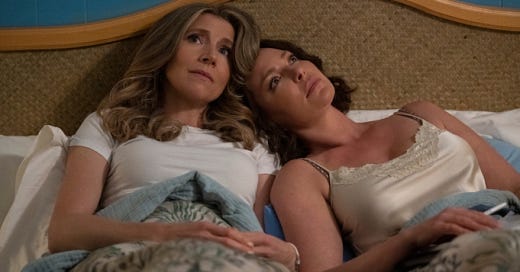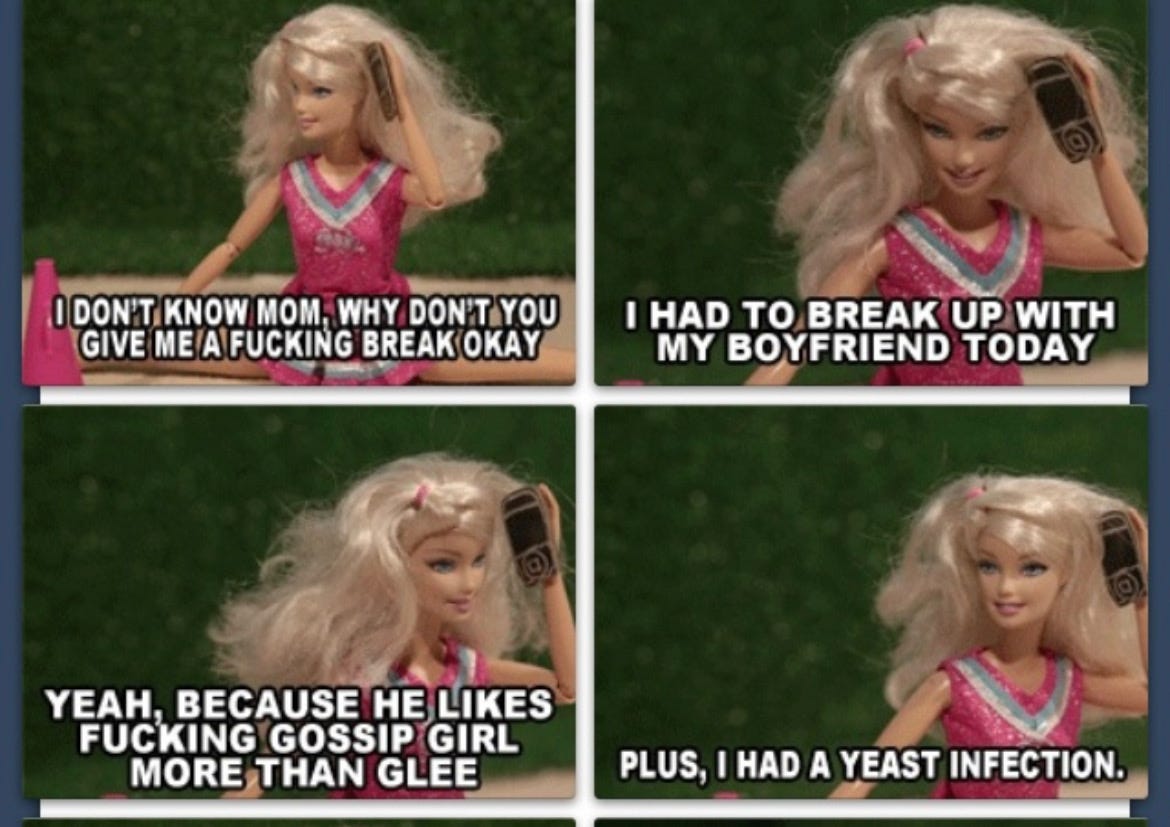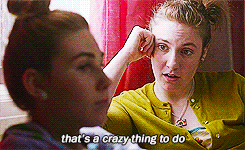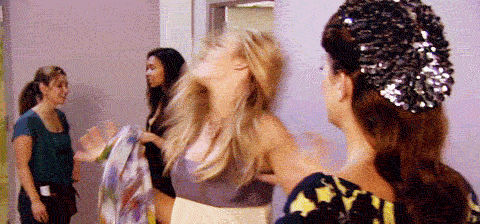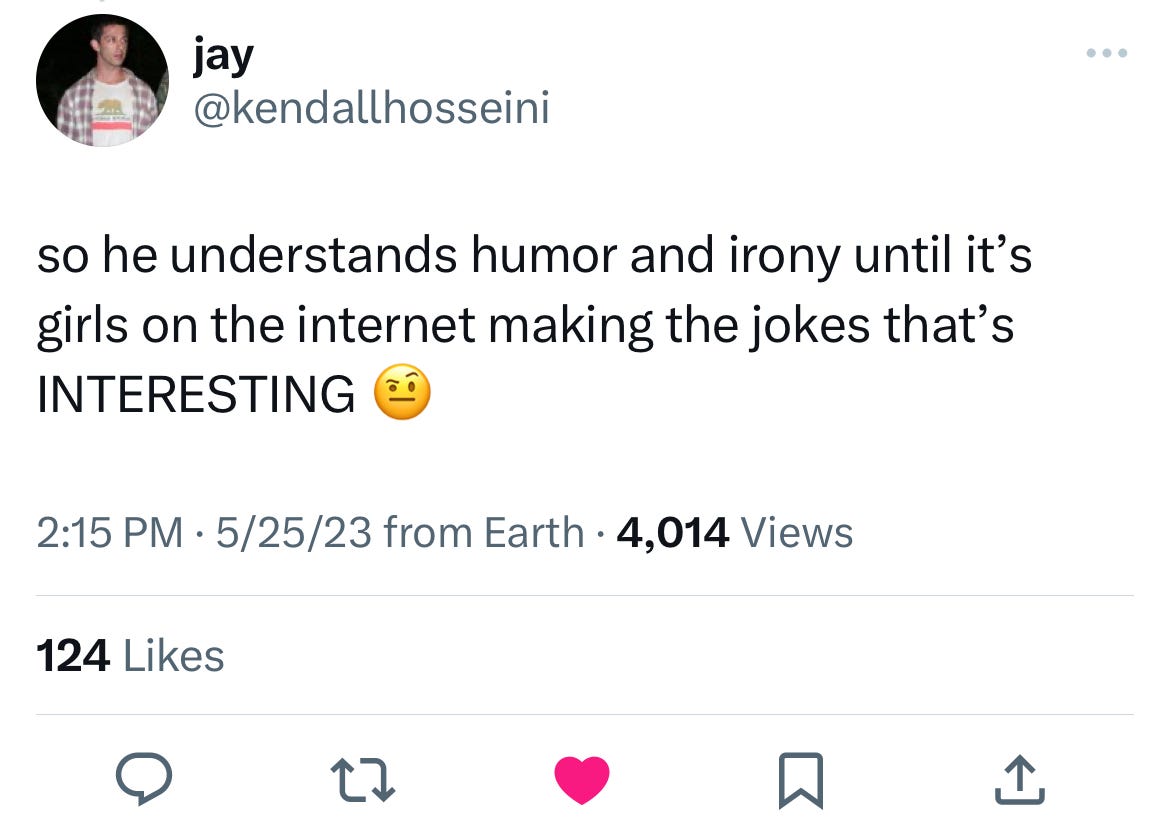Breaking Up With My Boyfriend Over Firefly Lane (This Is Clickbait)
How Tully and Kate made me examine female friendships and the impossible task of understanding ourselves
I was recently enjoying a plate of spicy rigatoni at a classic quantity-over-quality pasta joint when I overheard one woman at the table next to me say to the other, “So do you think you’re the Tully or the Kate?”
I quickly shushed my boyfriend who was talking about something “important” like “paying rent,” leaned a little to the right and eavesdropped as hard as I could.
“I think I’m Tully?” the second woman replied. I couldn’t believe it! Even feigned as a question, to confidently insinuate that that your friend is the Kate to your Tully is much too bold to do over a Wednesday evening dinner. Pay the bill and run, honey. This friendship is over.
The two women were referring to the main characters in Firefly Lane, a recently wrapped Netflix series based on the novel by Kristen Hannah. The show follows best friends Kate and Tully who meet when they’re teenagers, and jumps back and forth in time between those early years, their post-college years as roommates working at the same news station and their adult years. There are marriages, divorces and random hookups, but the show is really a love story between two best friends — a genre that I am, in any context, a sucker for.
The Tully-Kate relationship reflects a dynamic we often see on screen between two female friends. There’s the one friend who is free, wild and impulsive. She “lights up a room,” and people gravitate to her. She usually has problems related to her parents and/or drinking or drugs, but hey — she’s fun. The other friend is more down to earth and extremely intentional. She’s usually driven by something like school, career goals or being a really good wife or mom. The two women bring out the best in one another, and often, the worst. Think Serena and Blair in Gossip Girl or Marissa and Summer in The OC or Alison and … everyone else … in Pretty Little Liars. It’s not always so cut and dry, but if you think of all your fav duos, you’ll start to see different aspects of this dynamic pop up. Rachel and Monica in Friends, Jane and both Sutton and Kat in The Bold Type, even Meredith and Cristina in Grey’s Anatomy…
In the case of Firefly Lane, Tully Hart is the first archetype. She is constantly the center of attention and she loves it. In the early years, she does things like convince Kate to sneak out and is cast as the star in the school play. In the later years, she jumps from ambitious news reporter to anchor to hosting her own talk show. Her mom is a “hippie” who often chooses drugs over her daughter, while her dad is nonexistent (kind of; I am trying to save you all from spoilers which is very hard when you write a newsletter about television).
Then there’s Kate Malarkey. She’s worried about the rules, pines after boys but is too scared to speak to them, and is cast in the high school play as the character with, like, two lines. Kate is good at her job, but at some point she abandons her career completely, opting to stay at home with her child and support her husband’s career. Growing up, she has the “classic all-American nuclear family,” which ends up essentially adopting Tully (and maybe loving her more? Is Tully the Harry Potter to Kate's Ron Weasley?). Kate’s always the rock for the people she loves.
When my boyfriend saw my visceral reaction to the conversion between the women next to us at dinner, he started calling me “Malarkey” in an Australian accent, channeling what Kate’s husband (turned ex-husband, turned husband again) calls her on screen, just to get under my skin. I haven’t asked him if he actually thinks I'm Kate or Tully because, if he answers incorrectly, I fear it would be embarrassing to break up with him over a Netflix show that isn’t at least considered prestige television like House of Cards or Ozark.
Kate has arguably done fewer “bad” things than Tully, but I still find her insufferable. It’s possible, though, that she’s just an unflattering mirror. I have a lot of Kate-like qualities: I overthink, and I can be scared of going after what I want or sticking up for myself. Kate is comfortable and doesn’t like to switch things up, and sometimes I worry I’m the same way. And it’s hard to resist the longing to sparkle the way Tully does. She’s forever the talk of the town without really trying. In fact, sometimes she’s actively trying not to be. The people around her either like her or they don’t, but they feel some type of way about her. She’s an effortless force of being, where Kate often has to ask to be seen, to demand attention. This can make her seem a tad whiny and self-centered, which is really unfair when you think about it: with Tully and all her charm and charisma, Kate never stood a chance. But when I look at myself, I see pieces of Tully too. It’s nuanced; television reflects real life, but it doesn’t capture it perfectly. I mean how many times have any of us actually, in the middle of a party, screamed tearfully at one of our friends, “You can’t STAND not being the center of attention for just ONE NIGHT, can you??”
This is one of many tropes Firefly Lane leans into in a huge way. Tully’s mom, who once gets the girls high and brings them on the roof to watch the stars, is literally named “Cloud.” Kate’s very suburban, innocent mother says things like “I could hear your damn footsteps like a couple of Clydesdales.” Kate wears big glasses she can hide behind, while Tully wears bright red lipstick you can’t miss. Of course it’s over the top! It’s television and, like many of the shows that illustrate female friendships, it’s unrealistic. In real life there’s never so simply the one who’s fun, and the one who follows the rules.
Some television shows have nuanced approaches to character development and these friendships — dare I say… Girls? Or Broad City or Insecure. But often, you see some sort of strict dichotomy: If you’re one you can’t also be the other. And despite knowing that no one is ever just one thing, we (and when I say we I mean the type of people obsessed with the impossible task of understanding themselves) can’t help but delight in using that dichotomy as a means for definition, for putting ourselves in buckets and simplifying the process of figuring out who we are. Are you a Hannah rising, a Shoshanna moon? We piece together the character traits we see presented so simply for us in these characters and we create a reflection.
But we don’t just do this with the characters we see on screen. We do it with our friends in real life. Friends show us who we do (or don’t) want to be. We love them so fiercely and yet, in some way, we are always in competition with them — not competition in the sense that we’re trying to get ahead in work or school, but it can feel like we’re all in a race to solidify exactly who we are. So maybe Firefly Lane and television shows like it don’t get friendship wrong entirely.
Take Blair and Serena on Gossip Girl again. Serena falls in love in three seconds and couldn’t care less about where her future takes her, as long as she’s happy. Blair, on the other hand, is calculating, scheming her way into Yale (or whatever elite organization is top of mind that day) and maintaining a social hierarchy where she is clearly at the top. The two are horrible to one another and do things that could — and probably should — be unforgivable. But their friendship remains unshakable. When the stakes are high, they’ll defend the other to the ends of the earth1. Is this vicious devotion just another unrealistic plot device? Or do they continue to cling to and fight for the friendship because, across six seasons, they’ve grown into themselves mostly in reaction to each other? Blair helps Serena see she’s worthy of more than just attention from men. Serena helps Blair see that sometimes it’s okay to let your guard down.
This isn’t to say they’ve molded each other into upstanding citizens. If you still like Serena’s character come the end, I am concerned for you. (Because she forgave and married Dan Humphrey, he is now in an alternate universe a.k.a You following girls around in that stupid baseball hat and murdering them. This is why we can't let mediocre men get away with thinking they’re writing the next great American novel!) But their relationship’s arc does reflect the idea that often what from the outside looks like toxic competition between two frenemies is actually a byproduct of the struggle to grow. We ricochet off one another, taking from those around us on the way out.
In Firefly Lane, there’s one flash forward that takes place at Kate’s daughter Maura’s wedding. Tully is telling Kate how much she loves Maura and how incredible Maura has grown up to be. “She is the best of you,” Tully says. There’s no jealousy in her voice; it’s a mix of reverence and acceptance, almost as if she’s saying, “you are you and I am me and we’ve sculpted one another into something amazing.” Maura is the best of Kate — the part Kate wouldn’t be without Tully.
Firefly Lane, like the many shows that try to capture the wonder and tension of two friends loving one another with such intensity, can remind us of how our friends help define us. They help us see the good in ourselves, and they challenge us to be better. We are who we are because of one another — and though that can seem as clear cut as being this or that, it never is.
The two women I overheard in the Italian restaurant diverted their conversation from Firefly Lane soon after I started listening, but I imagine it will come up again, in another form. Maybe they’ll agree on who’s Kate and who’s Tully, or maybe they’ll agree, in the end, it doesn’t matter at all.
B Plot
Question: What’s your favorite bottle episode?
Mallika’s answer: I’m starting a fight with Vulture on this one and saying the third episode of The Last of Us a.k.a. the love story portrayed by Nick Offerman and Murray Bartlett. I know I know that is not truly a bottle episode — it is a “departure episode” as the Vulture critic calls it. Plus, bottle episodes were historically a cost-saving measure and I think we can all agree that HBO ain’t focused on saving money on any production that snags its Sunday night drop. But this is our newsletter and we make the rules so I am still going to use it anyway because we once watched Barlett take a poop on screen and that still couldn’t stop us from falling in love with him in this not-bottle bottle episode.
Rachel’s answer: It has to be The Sopranos’ Pine Barrens. The unkillable Russian (He was an interior decorator! His house looked like shit). The faint insinuation that Paulie might actually eat Christopher in his sleep. Chrissy looking like a blood soaked babushka wrapped in that silly blanket. Watching those two bozos fight over a tic tac. Television simply does not get any better. I will also make the case for Gilmore Girls’ “Friday Night’s Alright for Fighting.” It’s not a bottle episode, but it should have been one. The last 7 minutes of the episode take place in a particularly lively Friday night dinner at Emily and Richard’s house, in which the four main characters refuse to leave until they’ve repaired all the damage the previous season of terrible decisions wrought. They accomplished a lot in about 5 minutes of dialogue, in true Amy Sherman Palladino fashion, but I would have gleefully taken 45 minutes of Emily chasing Rory and Lorelai around her New Haven mansion airing grievances. Kelly Bishop’s deliciously villainous line reading of “Life is full of terrible things, Lorelai” lives rent free in my mind.
C Plot
The most baffling part of the HBO Max to Max (*Justin Timberlake voice* Drop the HBO, it’s cleaner) rollout might be that the newly branded streamer is getting the ball rolling with Sam Levinson’s widely controversial The Idol. The sleazefest, anchored by Selena Gomez’s and Timmy Chalamet’s exes respectively, premiered at Cannes Film Festival this week to a resounding “boooo.” But there is at least one good thing to come out of the show: It has awakened the narrative prowess of critics around the globe. Not in a long time have we seen so many people use so many good words to describe something so bad. Tesafye’s clusterfuck is the Protestant Reformation to critics’ Renaissance (not the Beyonce version, but maybe the Beyonce version).
The fact that this lede passed muster at Rolling Stone says it all: “Memo to showrunners: When in doubt about your lead character, just cut to her masturbating while choking herself.” Critic David Fear went on to say: “It has mistaken misery for profundity, stock perversity for envelope-pushing, crude caricatures for sharp satire, toxicity for complexity, nipple shots for screen presence.”
New York Times writer Kyle Buchanon tweeted: “‘The Idol,’ or 50 SHADES OF TESFAYE: A Pornhub-homepage odyssey starring Lily Rose Depp’s areolas and The Weeknd’s greasy rat tail.”
Ouch.
There is only one episode of Succession left and therefore only one more of Hunter Harris’ Power Rankings. It’s hard saying goodbye to our favorite clan of shit-slinging billionaires, but for Michael Schulman, saying goodbye might be his ticket to getting back in Jeremy Strong’s phone book. Schulman is the New Yorker writer who wrote the blue/gold dress of celebrity profiles on Strong (half of readers thought it was unnecessarily scathing and bordering on classist, the other half saw it as the kind of deep character study profiles had been missing. We personally don’t think enough are talking about the “looking camp in the eye” cover photo). Anyway, Schulman, perhaps fittingly, penned a “Farewell, Kendall Roy” essay which blasts the Kendall is Babygirl fandom as “a strange misreading of a character,” and in nearly the same breath eloquently explains why Kendall is babygirl: “But, at heart, Kendall is a weak person impersonating a strong one.” Kendall can be late-capitalist rot and also Twitter’s droopy-eyed stuffed animal, Schulman! The essay in all is very good but maybe it’s the New Yorker who doesn’t get the joke.
As we brace ourselves for the Roy-less world ahead of us, we can at least look forward to watching another pair of disgusting brothers on the big screen next fall: Leo DiCaprio and Robert DeNiro are getting rave reviews at Cannes for the new Scorsese flick Killers of the Flower Moon. Rachel, who after reading that book made it her entire personality and famously watched The Irishman on her iPhone on a flight prompting Marty to get really mad, is patiently waiting.
AND finally, Internet Daddies.
Ms. Waldorf did so much damage to Armie Hammer during that one takedown involving the Russian Tea Room that he fled to the Cayman Islands and is now selling timeshares or something? Not sure; I lost the thread on this one, thank god.

